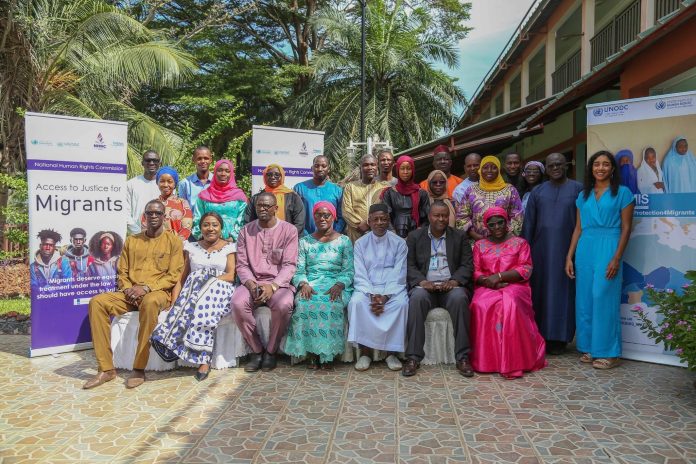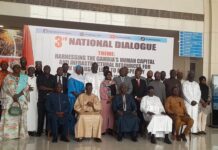By Fatou Dahaba
The National Human Rights Commission engaged the National Assembly Standing Committee on Human Rights and Constitutional Matters on Friday to Enhance Access to Justice for Migrants in the Gambia.
The two-day activity is expected to enhance understanding of NAMs on issues affecting migrants, misconceptions around migration and migrants, and The Gambia’s obligations to protect migrants, especially the domestication of the ICRMW, to enhance further protection of migrants in the country.
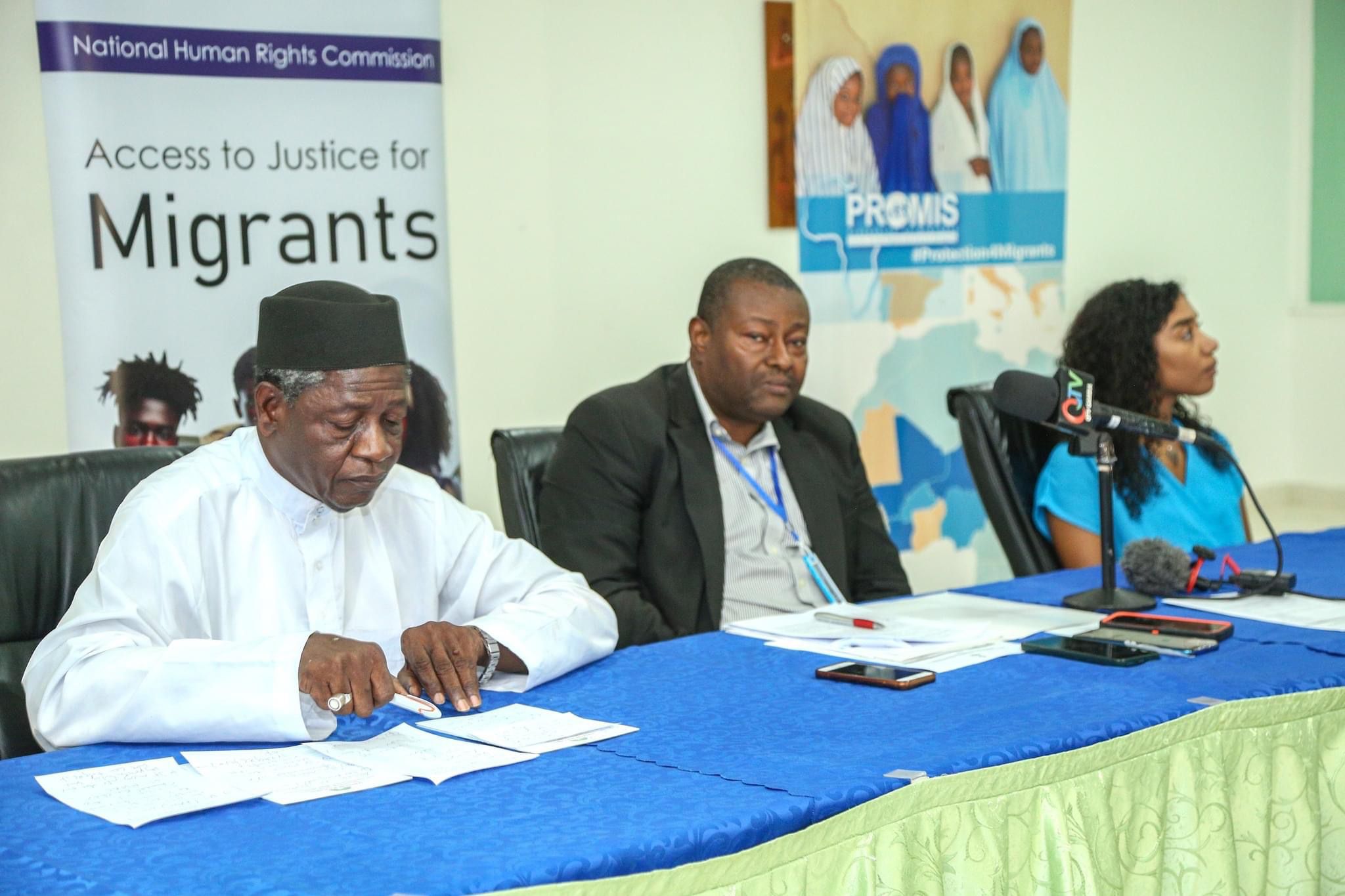
It will also allow the Committee and the Commission to identify ways to strengthen the protective environment for migrants and enhance the implementation of the Global Compact on Migration (GCM).
Emanuel Joof, Chairman of NHRC, said that, according to its national laws, the Gambia remains committed to upholding the human rights of all individuals within its jurisdiction; many migrants and their families face serious challenges in enjoying their human rights and freedoms, including access to justice.
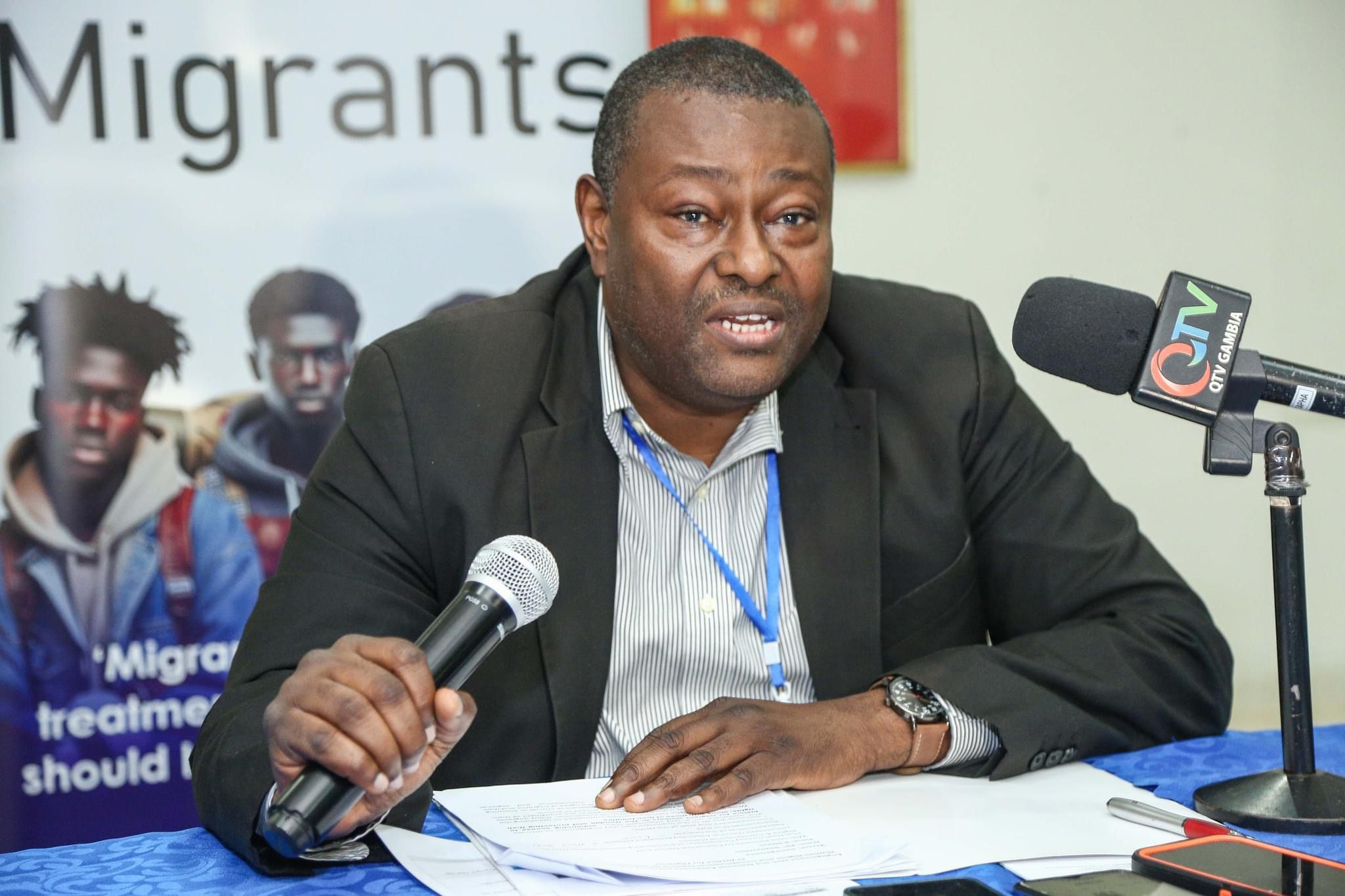
He emphasized the important roles of national assembly members in implementing and protecting the rights of migrants and their families, which are protected in international and regional instruments.
He also emphasized the importance of interrogating our national legal framework to identify gaps in our legal system and strengthen them to align with international and regional treaties and conventions we have ratified.
The Chairman also highlighted the significance of the international convention on the protection of the rights of all migrant workers and members of their families, which the Gambia ratified in September 2018.
It serves as a comprehensive framework aimed at safeguarding the human rights of migrant workers, irrespective of their legal status. It also emphasizes the need to protect migrants from exploitation, discrimination, and abuse, ensuring they have access to justice and fair treatment, he said.
Additionally, he added, “Migrants, because of their status, face many challenges and can be particularly vulnerable to human trafficking, forced labor, and other forms of exploitation. Protecting their rights helps reduce vulnerabilities such as discrimination and marginalization and Provides them access to vital services, such as healthcare and education.”
.
He said migrants contribute to the country’s social and economic development as many fill in the gap of labor shortages, provide skilled and expert services, pay taxes, and, thus, stimulate economic growth.
‘Protecting their rights helps to integrate them into society, allowing them to contribute fully.’
“As National Assembly members, your role is pivotal in translating our international commitments into actionable policies and legislation that can be effectively implemented at the national level.”
Hon. Madi Ceesay, Chair of the select committee on human rights and constitutional matters, said protecting migrants in the Gambia is of the utmost importance, as many Gambians live in other foreign lands and would want the best treatment and protection there.
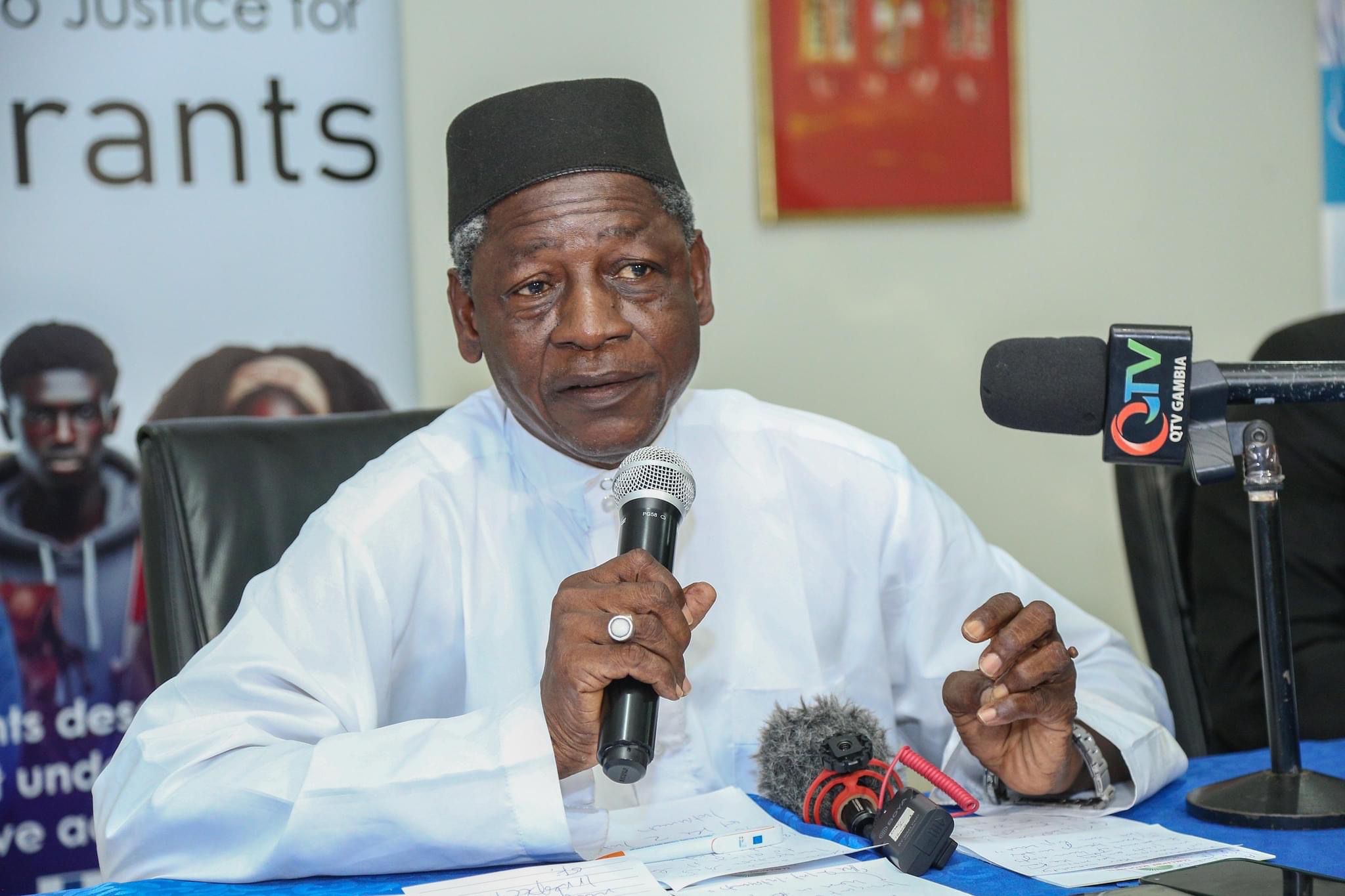
He starts by stating that access to justice for every migrant is a fundamental human right regardless of their nationality, as defined by international human rights law.
“Therefore, it is our duty, particularly the lawmakers, to trigger this right, more so as members of the National Assembly Human Rights Committee.”
He said the training could trigger two fundamental issues that the national assembly can expect to address, such as amending migration laws in the Gambia to align them with international standards and triggering the domestication of two international instruments mentioned by the chair.
Lina Reguigui, Project Officer for Human Rights at UN OHCHR, also reiterated the importance of upholding, protecting, and safeguarding the rights of migrants in the Gambia.
She said everyone has a sole responsibility to protect the rights of migrants or individuals mainly does who are mostly vulnerable, adding the Gambia’s unique geographical position as a departure and transit center places many migrants at risk of exploitation and discrimination.


